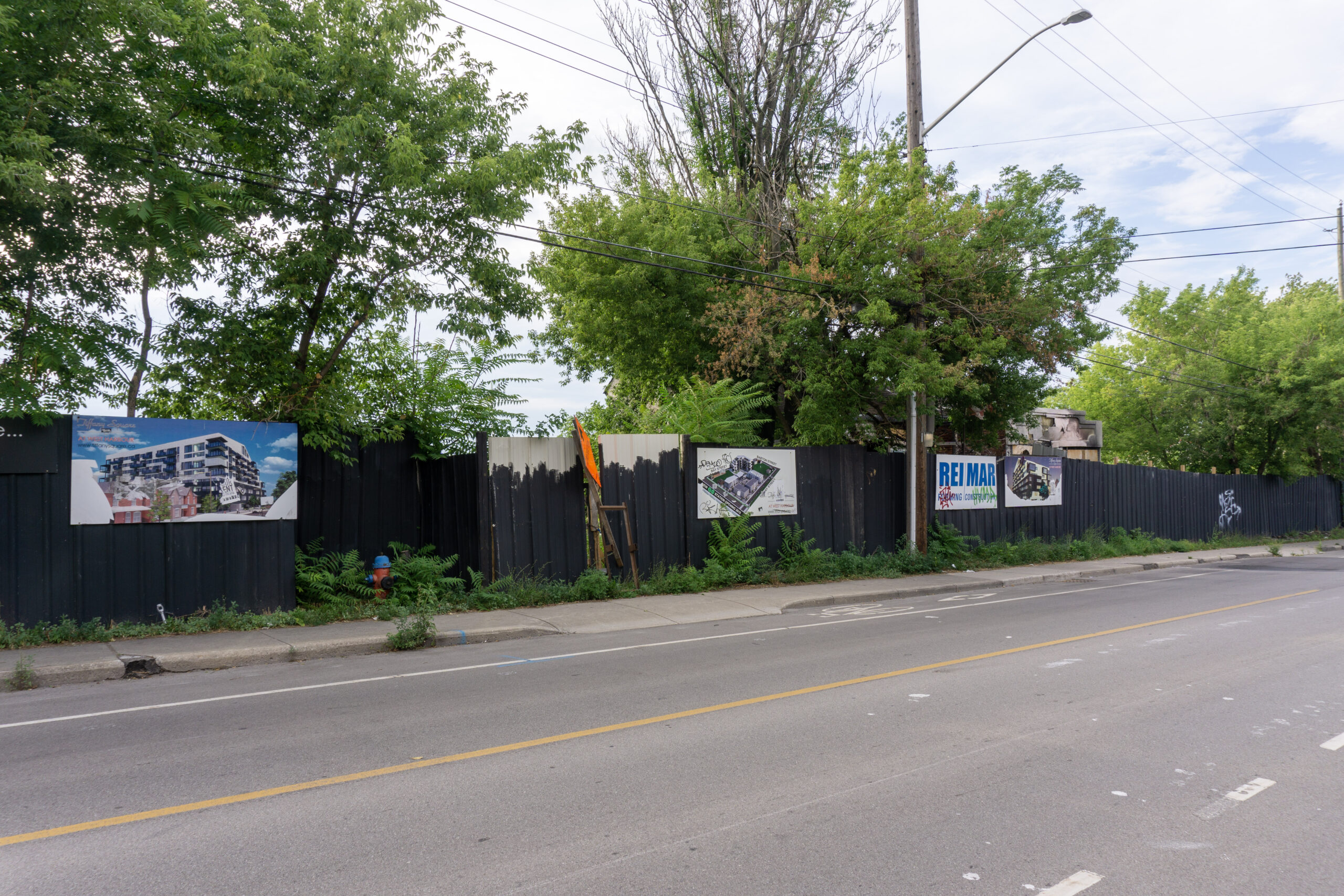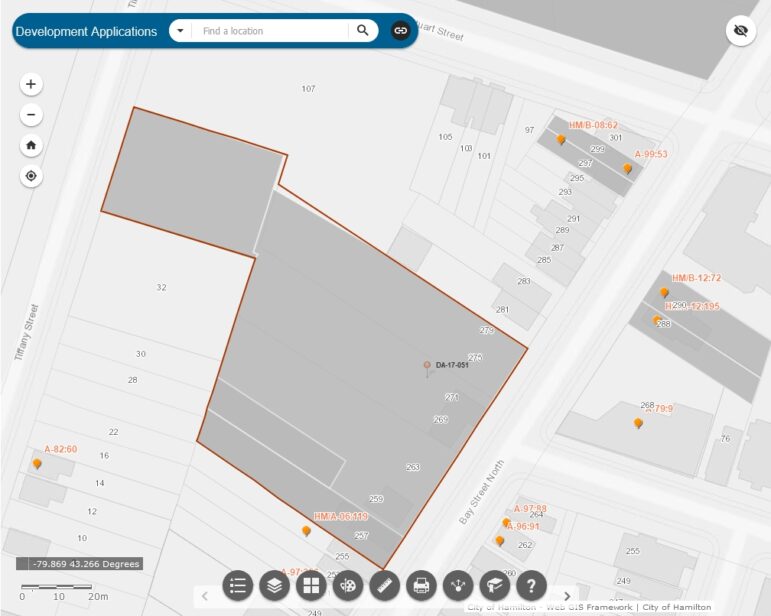The White Star Group of Companies wants to argue a recent Supreme Court of Canada decision regarding “de facto expropriation” is a case for it to reopen an over decade-old legal battle seeking nearly $33-million in compensation from the City of Hamilton.
Paul Vermaat of White Star Group will delegate in front of Council on Monday (July 10, 2023).
Vermaat will have five minutes to speak, as is granted to nearly anyone seeking to speak to Council.
Litigation History and Rebute of White Star’s Behaviour
White Star spent nearly ten-year litigating after the City of Hamilton discussed expropriating property at 271 Bay Street North, 107 Stuart Street, and 34-36 Tiffany Street in the West Harbour during the 2010/11 plan to build a new stadium at the West Harbour.
The City made an offer to White Star for the lands.
White Star rejected a voluntary purchase offer and sought higher compensation by forcing expropriation.
The expropriation never occurred because the City decided to build the new stadium elsewhere. Critically, the City never issued a notice of expropriation.
White Star then tried to argue at the Ontario Municipal Board the City had de facto expropriated the lands, and the City prevented them from developing the properties.
The Ontario Municipal Board (now known as the Ontario Land Tribunal) rejected White Star’s arguments, slapped White Star with legal costs, and declared White Star’s behaviour vexatious.
Vice-Chair Richard Makuch ruled White Star engaged in a “pattern of making unfounded allegations of bad faith and bias against the City and its counsel.”
“The Tribunal finds that White Star has engaged in a repeated and deliberate pattern of unreasonable, vexatious, and bad faith conduct over an extended period of time in this case.”
Makuch further agreed with the City that White Star’s behaviour is “reprehensible, scandalous, and outrageous.”
Makuch scorned White Star’s claim the City prevented the development of the properties.
“Expropriation was only being considered by the City from 2010 to 2011. Outside of this time frame, there was no active expropriation process that might involve the Subject Lands”, Makuch wrote.
“This means that for 18 of the last 20 years, there was no completed or contemplated expropriation which would have prevented the claimant from proceeding with the development of its lands.”
Makuch continued, “The Tribunal notes an inconsistency in the Claimant’s [White Star] position here with the Claimant simultaneously arguing that the City hampered its plans to develop its property while also claiming that the City should have completed its expropriation of the Subject Lands, giving rise to an interesting question: How can the Claimant claim that it could not carry through on its proposed development while also demanding that the City complete an expropriation of its lands which would render development at this location by the claimant impossible?”
White Star’s New Angle
White Star writes that its delegation will discuss the “Supreme Court of Canada Ruling of October 21, 2022 as it relates to defacto expropriations/constructive taking where no land is acquired” and that “the Supreme Court rules that a private land developer can take the regional municipality to court for its plan to expropriate its land.”
SCC Decision Does Not Help White Star
In Annapolis Group Inc. v. Halifax Regional Municipality, 2022 SCC 36, the Supreme Court revisited “revisited the test for constructive taking, also known as de facto expropriation.”
Osler, Hoskin & Harcourt LLP provides a summary of the case here.
“In a 5-4 decision, the SCC clarified the circumstances in which government regulation of land use may amount to a constructive taking of private property. Instead of requiring a property owner to show that a government authority obtained a formal proprietary interest in property, the SCC explained that a claimant must demonstrate: (1) that the government obtained an “advantage” flowing from the property; and, (2) the regulation eliminates all reasonable or economic uses of the property.”
The circumstances in Halifax significantly differ from anything White Star can claim.
Annapolis Group Inc owns approximately 965 acres of land that the City of Halifax refused to initiate a secondary planning process to allow the development of.
Annapolis Group’s litigation results from not being able to develop its properties.
The White Star Lands are zoned for private development with no public-use zoning. (Annapolis will have to give some of its land for parkland and other public uses if they ever get to develop)
The Supreme Court of Canada ruled the Halifax case “raises disputed issues of fact that need to be decided at trial.”
The SCC’s plain language summary states:
“Writing for a majority of the judges of the Supreme Court, Justices Suzanne Côté and Russell Brown found that Annapolis’ claim of constructive taking raises disputed issues of fact that must be decided at trial, based on the constructive taking test set out in the Canadian Pacific Railway Co. case.”
White Star already litigated its case at the Ontario Land Tribunal.
Case closed.
Future of the Lands
The lands were subject to Power of Sale in 2021 and purchased by a development group.
No formal planning application has been filed with the City of Hamilton.
The land’s proximity to the West Harbour GO Station allows for high-density development to be considered at the site.
Production Details v. 1.0.0 Published: July 7, 2023 Last edited: July 7, 2023 Author: Joey Coleman Edit Record v. 1.0.0 original version


